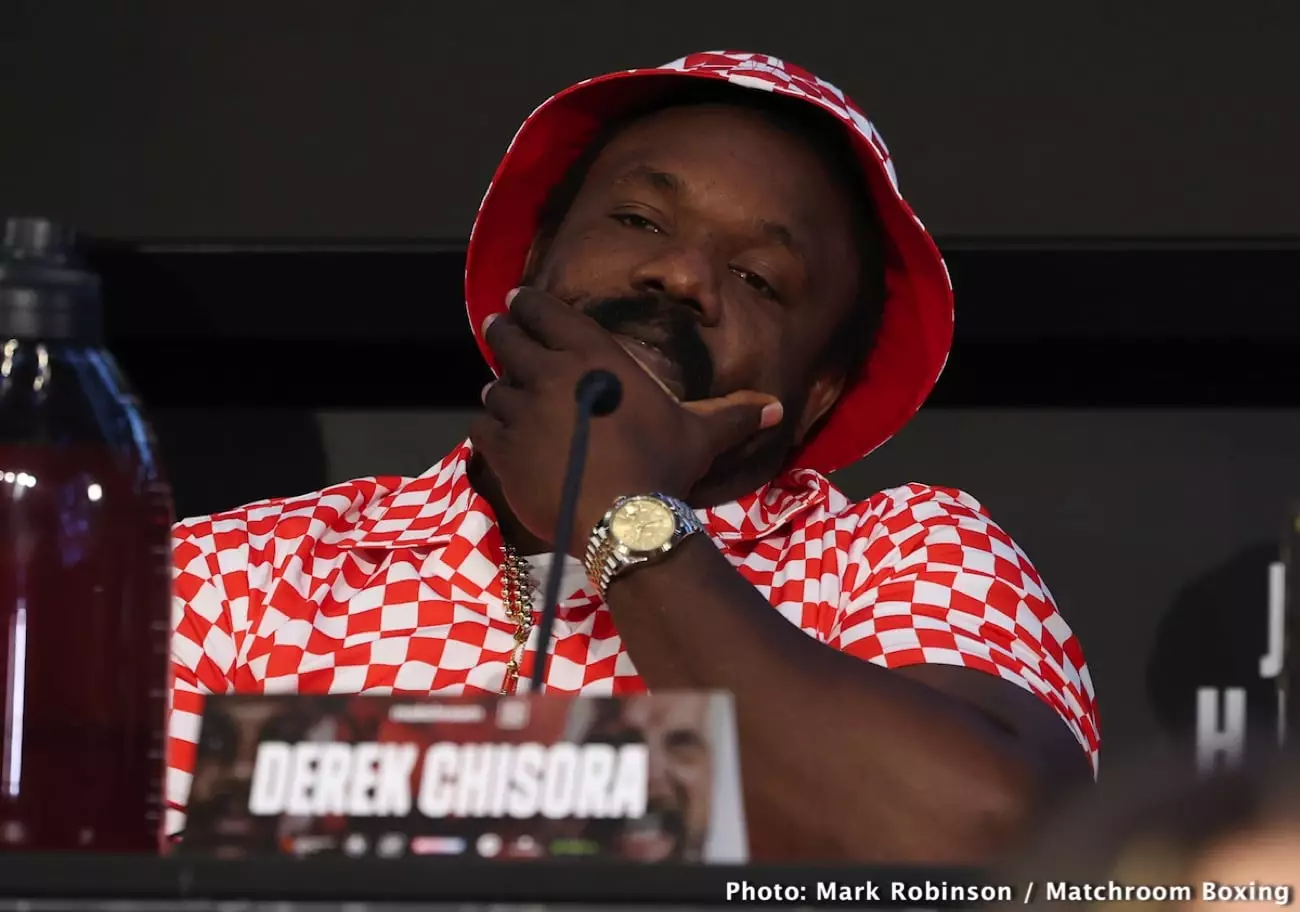Derek Chisora’s outspoken stance reveals a broader truth about modern boxing: not all rivalry renewals are worth the chaos they invite. Once a resilient contender, Chisora’s repeated lesser moments against Tyson Fury highlight a critical aspect of fight sports—the importance of knowing when to step back. His protests against another Fury-Usyk clash underscore a growing desire within the boxing community for meaningful competition, not leftovers of past glories. Chisora’s blunt rejection reflects a pragmatic mindset, recognizing that some rematches serve only to pander to hype rather than advance the sport.
This attitude also hints at an industry suffering from its obsession with rematches and nostalgia. Fury’s dominance over Chisora was already decisive, so a third bout feels like a spectacle for spectacle’s sake. The sport’s integrity relies on pulsing narratives of progress and opportunity, not predictability and repetition. The feeling that Fury and Usyk have already settled their score is accompanied by the belief that neither needs to revisit what’s already clear: Usyk has the skills and grit to pose serious threat, perhaps even more so than Fury.
The Power Dynamics: Who Truly Deserves The Spotlight?
Fury’s forthcoming pursuit of Oleksandr Usyk has ignited debate about merit and deservingness. Chisora’s dismissive tone suggests that Fury’s right to reclaim the heavyweight throne is questionable; especially when arguments point to other contenders like Joe Parker and Agit Kabayel. These fighters, who have demonstrated consistency and resilience, arguably deserve a shot more than Fury, who is increasingly viewed as a fighter driven by ego rather than necessity.
Moreover, Usyk’s position as a reigning champion carries undeniable weight. The boxer’s confidence in dictating his path is justified—he’s earned the right to choose his fights, especially after besting top contenders like Daniel Dubois. Fury’s call to fight in the UK is less about strategic advantage and more about maintaining a sense of control in negotiations, whereas Usyk’s stature as champion should grant him the authority to set terms. His potential decision to retire or continue hinges on the clarity of his own ambitions, not Fury’s demands.
The Future of Heavyweight Boxing Lies in Authenticity and Merit
The pattern of rematch economics and promotional politics often clouds genuine sporting merit. The boxing world is craving fresh challenges, new rivalries, and fighters who demonstrate the hunger to push their limits. Fury, despite his dominance, must accept that the heavyweight division is richer than his personal narrative alone. As for Usyk, his confidence exudes an understanding that he holds the power—both figuratively and literally—in shaping his future.
In a sport where courage and skill matter most, the fighters who truly deserve our attention are those willing to seize new opportunities and forge their own destinies. Fury’s desire for a match in the UK seems less like a strategic choice and more like a bid to preserve his legacy on familiar ground. Meanwhile, Usyk’s stance—confident and unwavering—reminds us that in boxing, power ultimately rests with the champion who refuses to be dictated to. The heavyweight division, full of potential and unresolved narratives, is best served when fighters prioritize merit over punditry.

